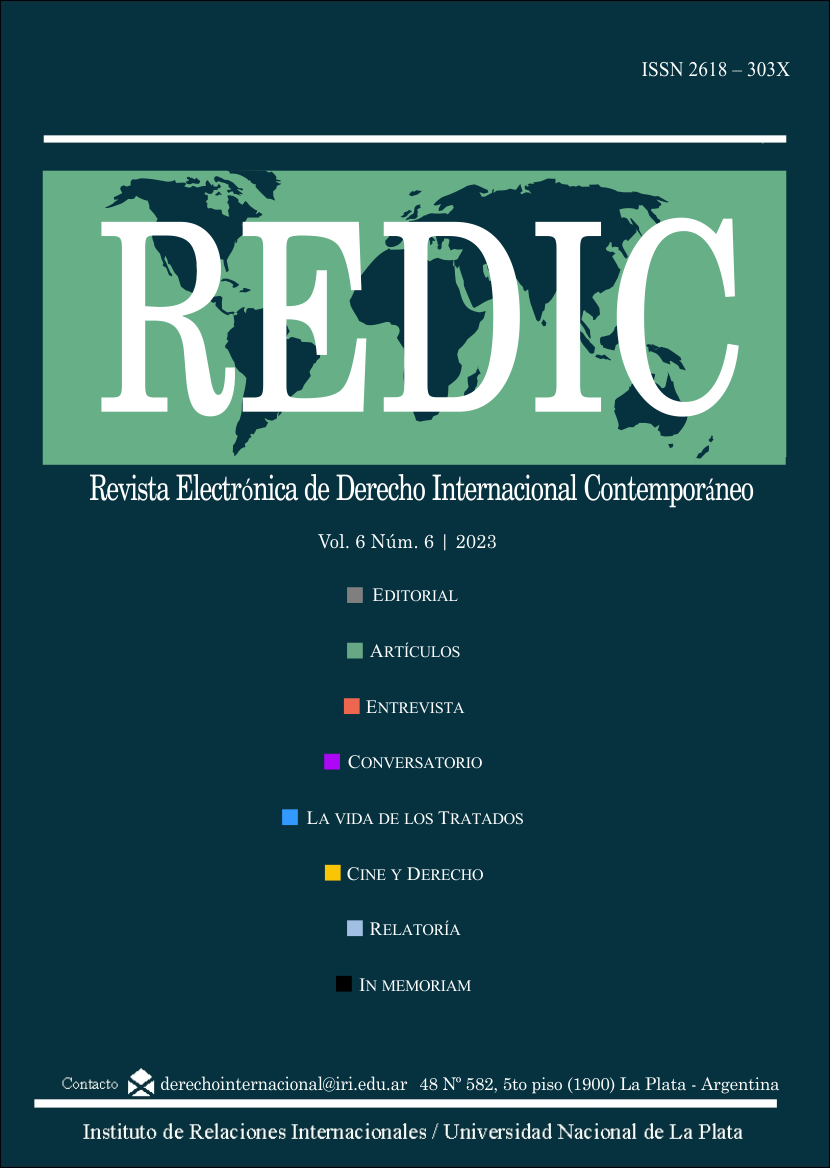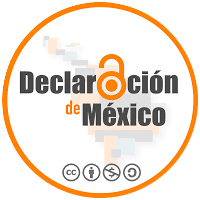Porque siendo tú el mismo, eres distinto
Sofía volverá
DOI:
https://doi.org/10.24215/2618303Xe058Palabras clave:
derechos humanos, cambio climático, medioambiente, derecho internacionalResumen
El presente trabajo analiza la película murciana Sofía volverá desde la perspectiva del Derecho Internacional. La chica mencionada debe migrar por cuestiones ambientales, ya que su Mar Menor, que organiza su vida, ha sufrido un ecocidio. Sobre esta base, se analiza la configuración jurídica de la vertiente ambiental del Derecho Internacional a fin de proponer, en caso de que fuera necesario, un cambio jurídico de la protección del medioambiente con el objetivo de protegerlo de forma más eficaz y, además, luchar contra el cambio climático por medio del Derecho. Ese cambio jurídico también sería cultural, porque supone que, a través de una educación jurídica, la gente cambie su forma de relacionarse con el medioambiente. Para cambio esta mirada, se propondrá que el enfoque jurídico-ambiental, predominantemente occidental, mire hacia otras cosmovisiones como la indígena, cuya relación con la naturaleza difiere por cuanto no la mira como objeto sino como sujeto.
Descargas
Archivos adicionales
Publicado
Cómo citar
Número
Sección
Licencia
Derechos de autor 2023 Carlos Gil Gandía

Esta obra está bajo una licencia internacional Creative Commons Atribución-NoComercial-CompartirIgual 4.0.
Aquellos autores/as que tengan publicaciones con esta revista, aceptan los términos siguientes:
- Los autores/as conservarán sus derechos de autor y garantizarán a la revista el derecho de primera publicación de su obra, el cuál estará simultáneamente sujeto a la Licencia de reconocimiento de Creative Commons (BY-NC-SA) 4.0 que permite a terceros compartir la obra siempre que se indique su autor y su primera publicación esta revista, no se haga uso comercial, y si se remezcla, se transforma o se crea a partir del material, se debe distribuir bajo la misma licencia del original.
- Los autores/as podrán adoptar otros acuerdos de licencia no exclusiva de distribución de la versión de la obra publicada (p. ej.: depositarla en un archivo telemático institucional o publicarla en un volumen monográfico) siempre que se indique la publicación inicial en esta revista.
- Se permite y recomienda a los autores/as difundir su obra a través de Internet (p. ej.: en archivos telemáticos institucionales o en su página web) antes y durante el proceso de envío, lo cual puede producir intercambios interesantes y aumentar las citas de la obra publicada. (Véase El efecto del acceso abierto).































